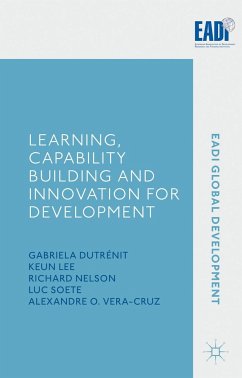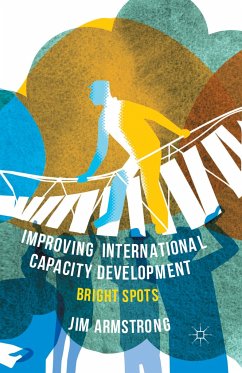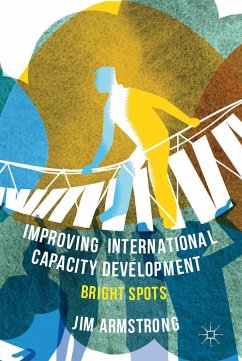
Learning, Capability Building and Innovation for Development
Versandkostenfrei!
Versandfertig in 6-10 Tagen
38,99 €
inkl. MwSt.

PAYBACK Punkte
19 °P sammeln!
Today, a large number of scholars studying development understand this process as involving learning and capability building. Capability building is an active, not a passive, process. It requires a purposeful effort from the learner's side, with support and commitment on allocation of time and resources toward learning activities. This process implies the possibility of failure as well as success, as we also learn from failures. A global cast of academics and policy makers examines economic development as a process of learning and technological accumulation, showing how economic development is...
Today, a large number of scholars studying development understand this process as involving learning and capability building. Capability building is an active, not a passive, process. It requires a purposeful effort from the learner's side, with support and commitment on allocation of time and resources toward learning activities. This process implies the possibility of failure as well as success, as we also learn from failures. A global cast of academics and policy makers examines economic development as a process of learning and technological accumulation, showing how economic development is a process involving creative destruction. While markets and market competition play major roles in structuring the development process, non-market institutions and government policies matter.












